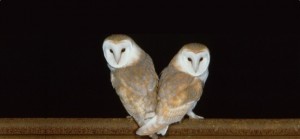
The petition is directed at MP Mike Penning, who is responsible for pesticide regulations, and the Health and Safety Executive and it’s intended to put forward a number of simple changes to the regulations for rodenticides. If the petition is successful and pushes through the changes then it will be a significant win for bird-life preservation.
The changes being proposed by the petition are fairly simple and not particularly onerous, so we’re hopeful they’ll get through if enough people throw their signiture behind the campaign, which is being pushed by Avaaz, along with the Barn Owl Trust. Essentially, what their trying to achieve is the introduction of tighter regulations around how and when certain toxic rodentecides are used.
They’re calling on the minister to amend the regulations for toxic rodenticides, second generation anticoagulant rodenticides (SGARs), to make them a last chance resort, only to be used after non-toxic and less toxic control methods have been fully deployed. Only if a persistent rodent problem continues to be a significant threat to public health after this should SGARs be used.
They’re also asking for a ban on preventative and permanent baiting to ensure that rodenticides are only used when there is actually a problem. Finally, they’re also asking for an improvement to the information displayed on SGARs to improve awareness of the problem. They want them to include more accurate information that clearly states the extent of contamination of both barn owls and kestrels, which is estimated to be in the region of 84-100%, and also documenting the fact that keeping bait covered doesn’t necessarily prevent secondary poisoning
The issue with the rodenticides is that when any raptor family birds, including barn owls, other owls that roost in the UK, kestrels etc, kill or otherwise ingest a poisoned rodent they ingest the poison too. While this can lead to death for the bird, it can also have an impact on their ability to hint or breed, which is also impacting their numbers.
You can find out more about the issue and all of the scientific study behind the petition at the Barn Owl Trust. You can also sign the petition for yourself by visiting Avaaz.


